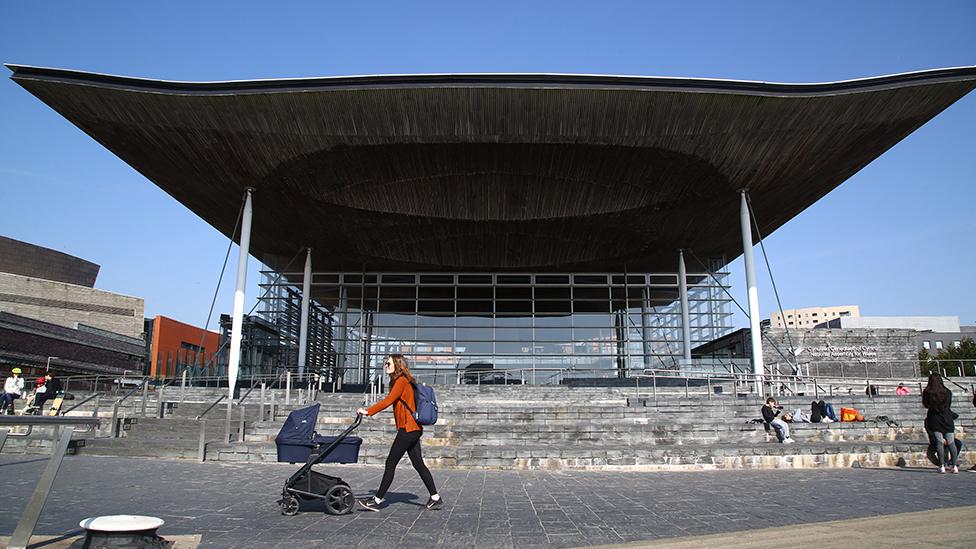Local elections 2021: A simple guide to English council elections
- Published
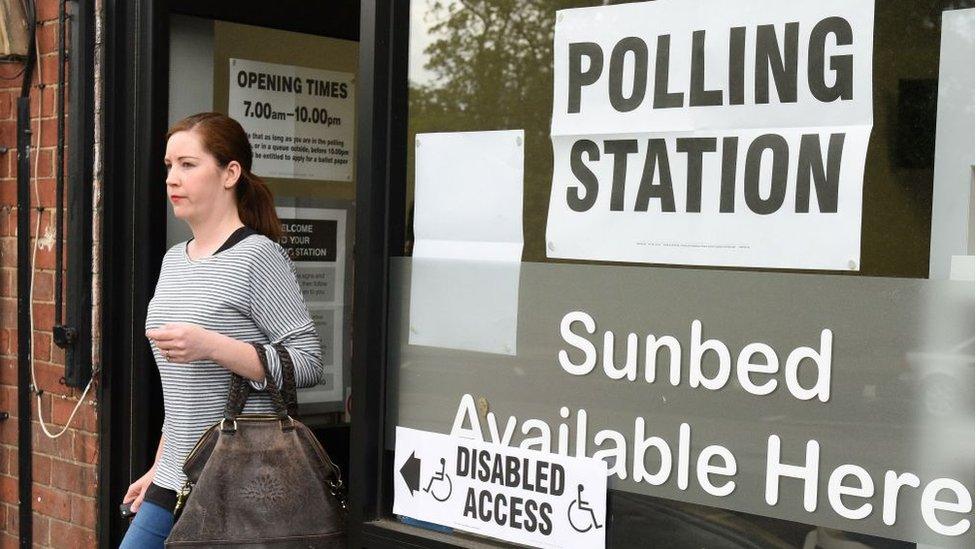
Voters in many parts of England get the chance to elect their local councillors on 6 May.
The elections will decide who runs local services - such as schools, libraries and bin collections - in 143 councils.
Where are they taking place?
Local council elections are happening in England, but not in all areas.
Approximately 28 million people will be able to vote for about 4,650 positions of power.
Last year's vote was delayed because of Covid, so this year we will see a bigger-than-usual number of positions up for election.
Why do these elections matter?
They will decide who is in charge of local public services - and how they are run.
In a survey of 3,000 people, conducted by the University of Essex, 59% said coronavirus was the most important issue in the forthcoming local elections.
Although most of the big pandemic decisions have been taken by central government, councils have played a part in managing the virus - for example, by supporting test-and-trace efforts.
The pandemic has hit councils hard, with reduced income from business rates, car parks and leisure centres.
This comes off the back of long-term cuts to local government dating back to 2010, following the global financial crisis.
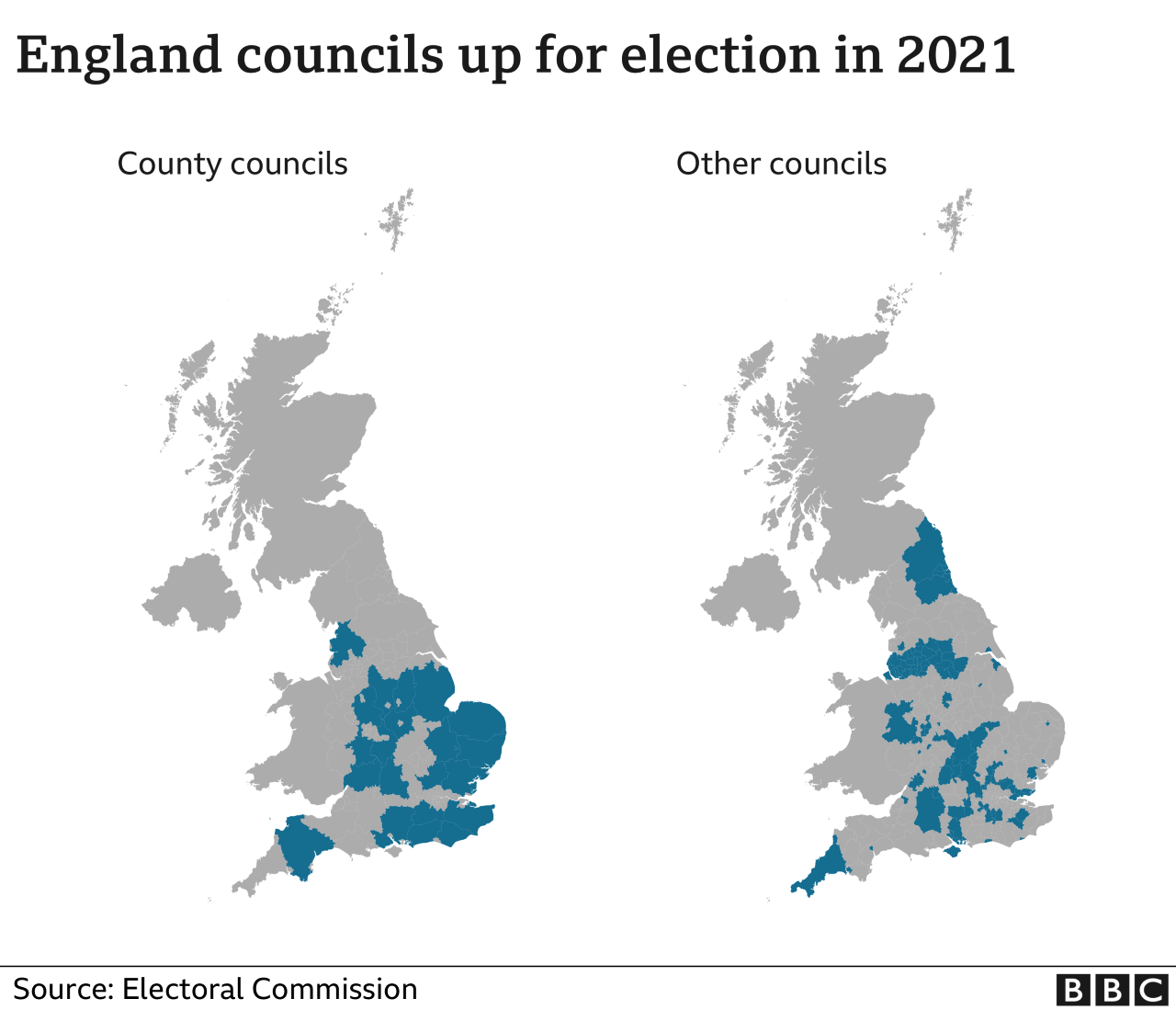
From this month, local councils are able to raise council tax by 5%, at a time when the cost of living is rising by less than 1%.
The decision to increase taxes is up to individual councils - and the issue could come up during the election campaign.
Other issues like local housing developments or changes in bus routes can also be factors in local elections.
The results will also give an indication of how popular the parties are nationally.
It will be the first real political test for Labour leader Sir Keir Starmer and the Liberal Democrat leader Sir Ed Davey.
What do local councils do?
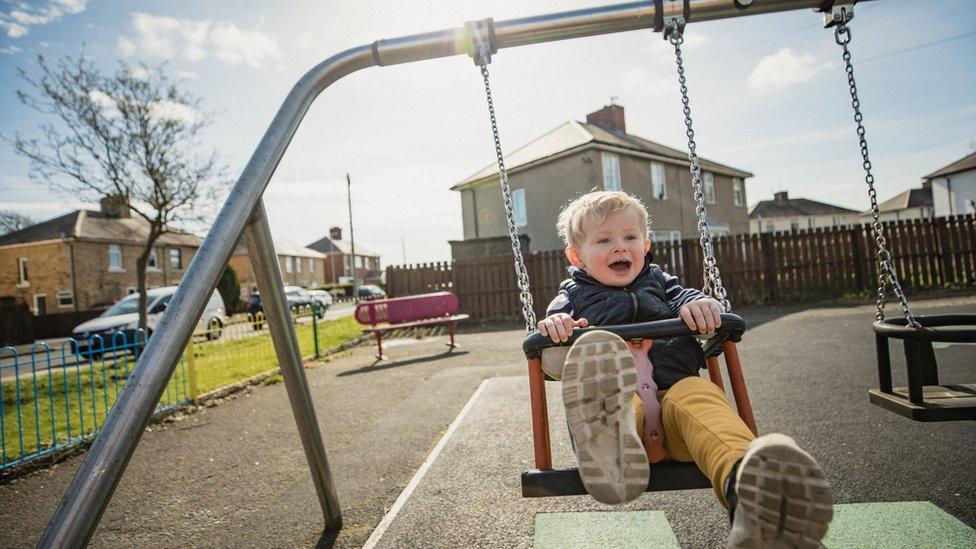
Councils are responsible for many local services, including playgrounds
Local councils are responsible for providing many of our public services. For example:
Providing care for the elderly and disabled
Fixing potholes on some roads
Collecting rubbish
Providing libraries
Planning applications
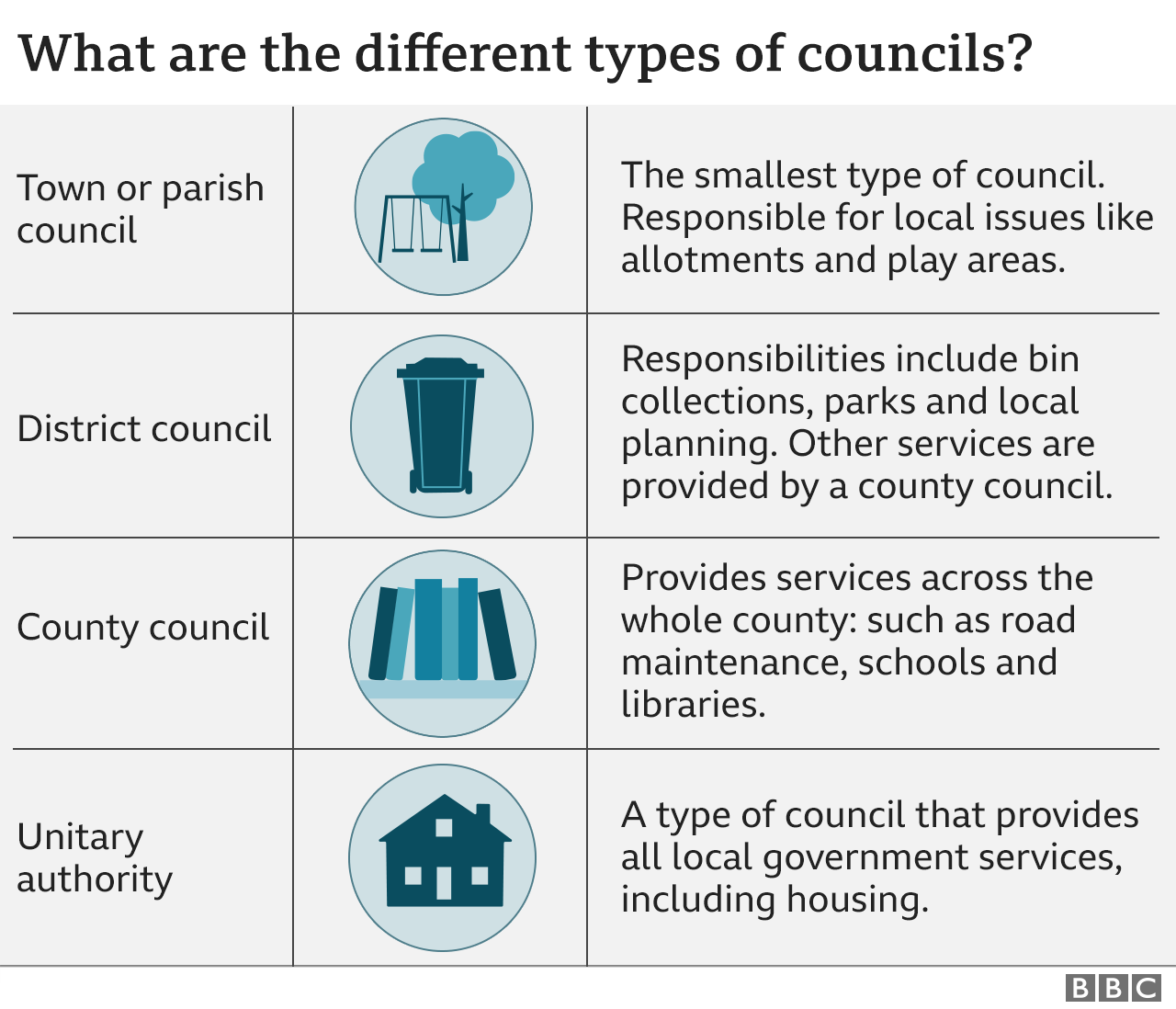
Local councils are partly funded by central government, but they can also raise their own revenue through:
Council tax - a compulsory charge on properties set by local councils
Business rates - a tax put on properties used for commercial purposes
Some parts of England are covered by county councils, which cover an entire county, and district councils, which cover a smaller area within the county.
In other areas, one single body - sometimes known as a unitary authority - carries out all local government tasks.
In some places, parish or town councils operate under district councils or unitary authorities - they can have responsibility for local issues such as allotments and public clocks.
On 6 May there will be around 2,000 parish or town council elections with approximately 20,000 seats available.
143councils will be holding elections across England
47are held by the Conservatives
54are held by Labour
6are held by the Liberal Democrats
33are under "no overall control" meaning no party has won a majority
3 newly-formed councils will also hold elections
Who can vote and how?
Voters in the elections must be 18 or over on the day of the election.
All voters must be:
registered at an address in the area where they want to vote
a British citizen, an Irish or EU citizen or an eligible Commonwealth citizen, external
not legally excluded from voting
There are three ways to vote:
in person at a polling station (often in places such as schools and community centres)
by postal vote
by nominating someone to vote for you (a proxy vote)
The deadline to register to vote is Monday 19 April.
The deadline to register for a postal vote is 17:00 BST on 20 April.
The deadline to apply for a proxy vote is 27 April, although emergency proxy votes will be available up until 17:00 on election day if voters need to self-isolate.
You can go online to register to vote., external
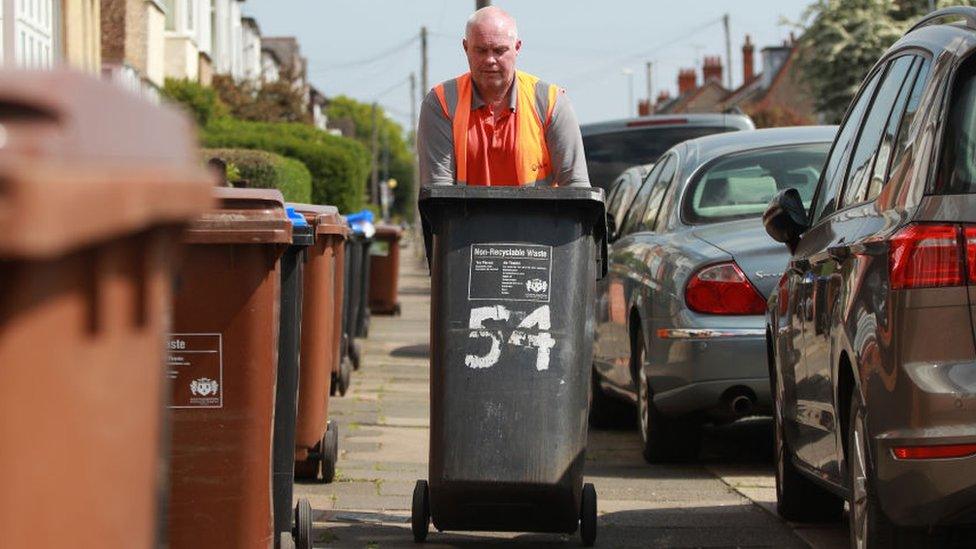
Bin collection can be a big local election topic
How will coronavirus affect voting?
Polling stations need to make voting Covid-secure.
Social distancing will be in place.
Voters are encouraged to bring their own pens or pencils - and those who have been shielding to vote by post.
But an all-postal ballot has been ruled out as being too difficult to organise.
Because of social distancing, vote counting is expected to take longer than usual and could go into the weekend.
How are the winners chosen?
Voters have one vote for each available seat in their area (a ward or division)
In most cases, that means one vote - but large wards may have several seats
Whoever receives the most votes wins the seat
If one party wins more than half the council seats, they have control of the council
If no party has a majority, parties will often join forces (known as a coalition)
All councillors are elected for four years.
Not all council seats are up for election this year, as some councils hold elections for seats once every two years, or even three years out of four.

Postcode search: Who is standing in your area
Voting: How do I vote?
Simple guide: All the elections on May 6
Scottish elections: A simple guide
Wales elections: A simple guide


What questions do you have about the upcoming elections?
In some cases your question will be published, displaying your name, age and location as you provide it, unless you state otherwise. Your contact details will never be published. Please ensure you have read our terms & conditions and privacy policy.
Use this form to ask your question:
If you are reading this page and can't see the form you will need to visit the mobile version of the BBC website to submit your question or send them via email to YourQuestions@bbc.co.uk, external. Please include your name, age and location with any question you send in.

Related topics
- Published29 April 2021

- Published7 May 2021
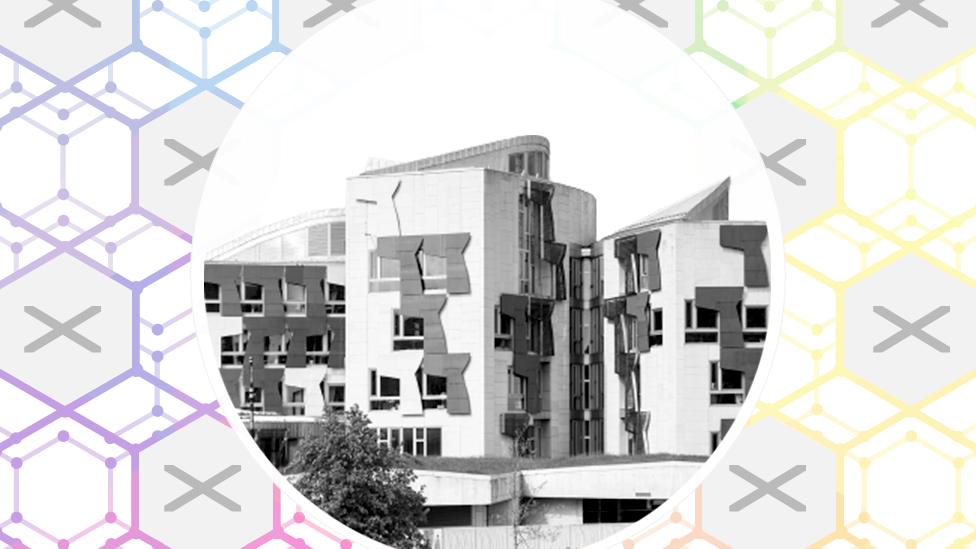
- Published6 May 2021
